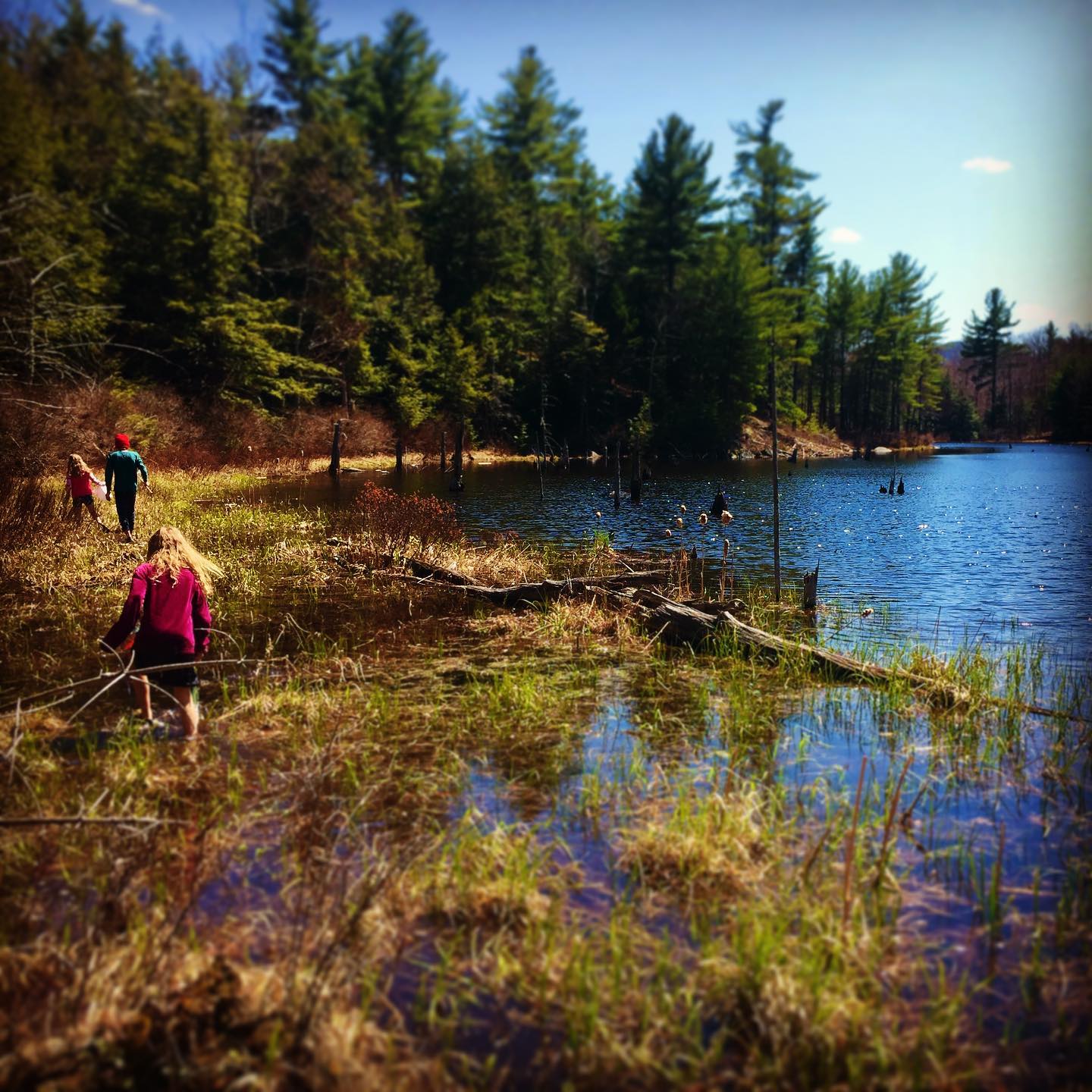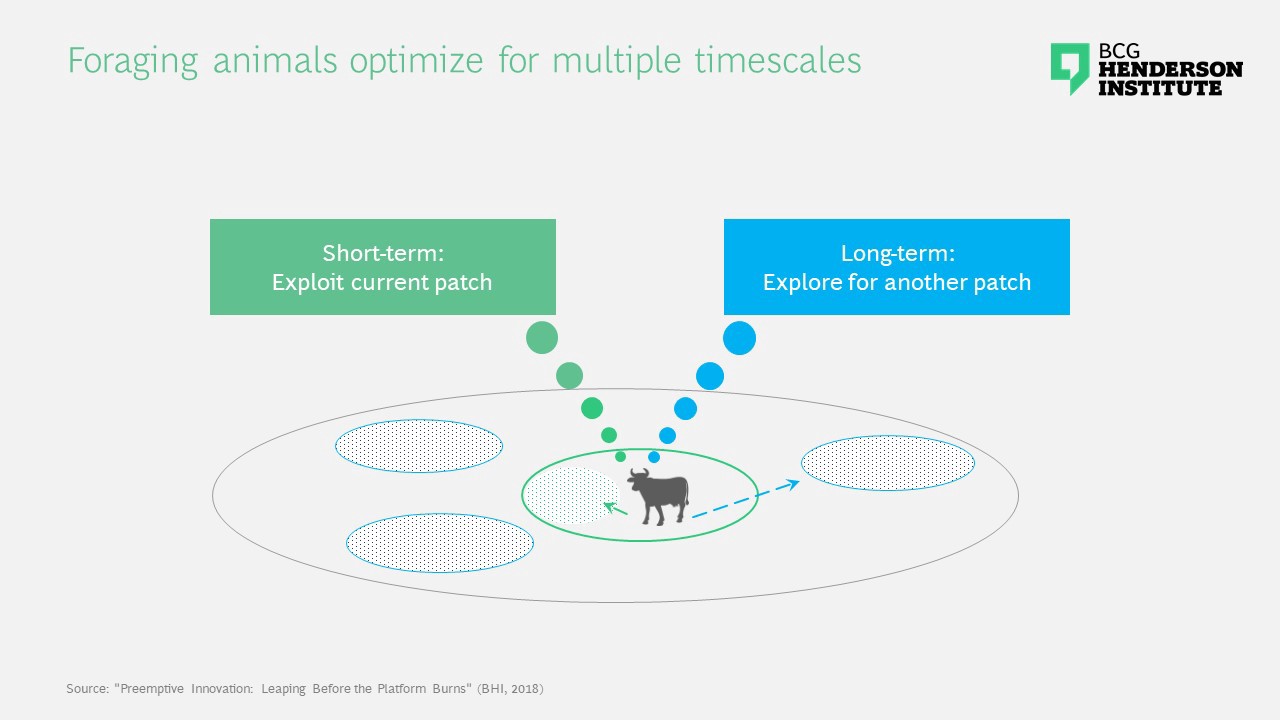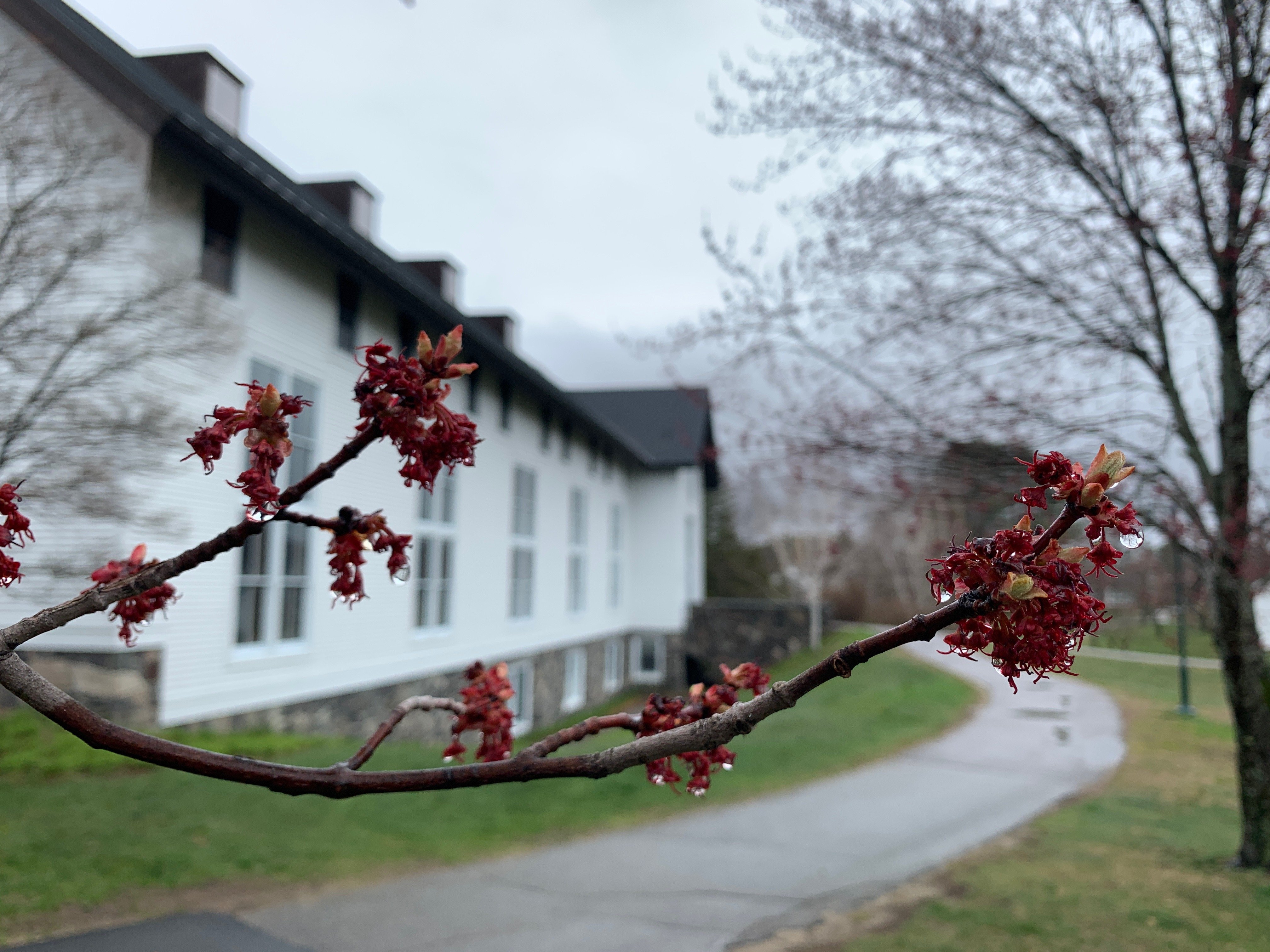Our natural world is awakening around us, albeit slowly. Over the weekend, temperatures crept into the 70s for the first time in nearly seven months. Blossoms in the apple orchard have begun to flower, the grass is greening, dandelions abound, and yes the black flies have emerged as spring flood waters slowly recede back into the banks of the Blackwater River. As we watch the seasons change, we are reminded organizations like Proctor are living organisms as well.

Photo: Tom Morgan from Proctor's Mud Pond
This article layers a biological lens to the challenges facing organizations at this time by discussing the trade-off foraging animals face as they decide between feeding from their current pasture and searching for a new patch to feed from in the future. Feeding on known land provides a short-term guarantee. It’s safe. But, it also runs the risk of exhausting the food supply without a viable alternative. Shifting to a new patch of land provides a long-term food source, but creates a short-term unknown. The authors of the piece, Martin Reeves, Simon Levin, and Kevin Whitaker, note, “Many animals therefore begin searching for a new patch at the optimal point to balance short- and long-term benefits.” They innately have mastered the marginal value theorem in a way we can only imagine as a school.

This is where we find ourselves at Proctor, at this inflexion point where we are simultaneously affirming the rich learning environment that is (and has been) Proctor’s educational model, and looking to future opportunities presenting themselves during this period of rapid change. How do we intentionally evolve while nurturing that which has made us, us? The answer to this question may live in the notion of temporal ambidexterity, or as the article linked above describes, “the ability to apply different strategic approaches, to different problems on different timescales, and to modulate the approach according to changing circumstances.” Schools able to engage in this simultaneous execution of their educational model and planning for future scenarios will emerge from COVID-19 stronger than ever, and our faculty and staff are embracing this incredibly complex task with inspiring enthusiasm.
Many boarding schools pride themselves on tradition, on a belief that a rich history positively shapes future student experiences. At Proctor we celebrate our traditions as well - this September we will launch our 50th Wilderness Orientation and will prepare for the 50th anniversary of Mountain Classroom in 2021 - but recognize our agility as an organization is a far greater asset than our traditions.

While disruptive beyond belief, COVID-19 has accelerated many of the conversations we, as school, have been discussing for quite some time: a revised academic schedule, the possibility of technology blended courses, mastery assessment, more opportunities for interdisciplinary, project-based learning, and the need for better balance in our daily lives. We may have been forced into this new reality, but we have a choice how we will evolve as a result of it.

On Wednesday evening, we invite the community to join us for our second virtual Town Hall forum where we will put our temporal ambidexterity on display. Student Health and Wellness Coordinator Megan Hardie, lead Counselor Kara Kidder, and Director of Health Services Sue Norris will share the current work we are doing to support students this spring and will answer questions related to Student Life and Wellness as we start to think about fall 2020 and the challenges (and opportunities) it presents. We hope you join us for this next in our series of Town Hall forums this spring.








